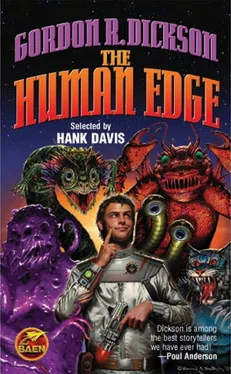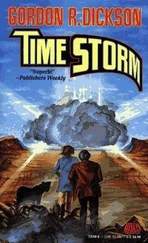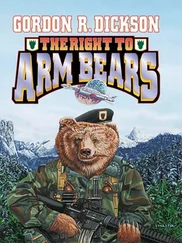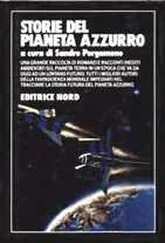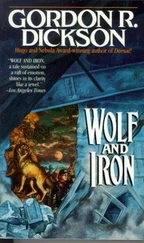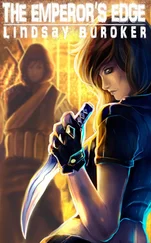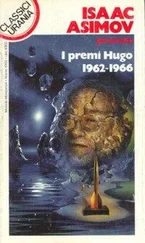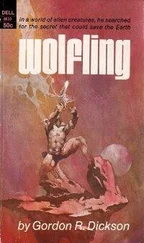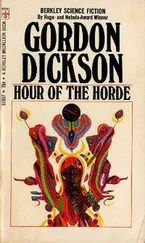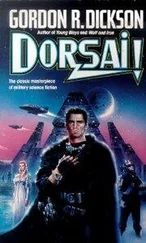“What price?”
“Better relationships, more travel between the races.”
“But—” Ty stammered. “It’s not true! That about manipulating the data.”
“Of course it’s not true!” snapped Mial. “And they never would have believed it if they hadn’t seen you—the neutralist—fighting me like a Kilkenny cat.” Mial stared at him. “Neither alien bunch ever thought seriously about not going to war anyway. They each just considered putting it off until they could go into it with a greater advantage over the other.”
“But—they can’t prefer war to peace!”
Mial made a disgusted noise in his throat.
“You amateur statesmen!” he said. “You build a better mousetrap and you think that’s all there is to it. Just because something’s better for individuals, or races, doesn’t mean they’ll automatically go for it. The Chedal and Laburti have a reason for going to war that can’t be figured on your Annie-machine.”
“What?” Ty was stung.
“It’s called the emotional factor,” said Mial, grimly. “The climate of feeling that exists between the Chedal and the Laburti races—like the climate between you and me.”
Ty found his gaze locked with the other man’s. He opened his mouth to speak—then closed it again. A cold, electric shock of knowledge seemed to flow through him. Of course, if the Laburti felt about the Chedal as he felt about Mial…
All at once, things fell together for him, and he saw the true picture with painfully clear eyes. But the sudden knowledge was a tough pill to get down. He hesitated.
“But you’ve just put off war a hundred and twenty-five years!” he said. “And both alien races’ll be twice as strong, then!”
* * *
“And we’ll be forty times as strong as we are now,” said Mial, dryly. “What do you think a nearly three percent growth advantage amounts to, compounded over a hundred and twenty-five years? By that time we’ll be strong enough to hold the balance of power between them and force peace, if we want it. They’d like to cut each other’s throats, all right, but not at the cost of cutting their own, for sure. Besides,” he went on, more slowly, “if your peace can prove itself in that length of time—now’s its chance to do it.”
He fell silent. Ty stood, feeling betrayed and ridiculed. All the time he had been suspecting Mial, the other man had been working clear-eyed toward the goal. For if the Laburti and the Chedal felt as did he and Mial, the unemotional calm sense of Annie’s forecast never would have convinced the aliens to make peace.
Ty saw Mial watching him now with a sardonic smile. He thinks I haven’t got the guts to congratulate him, thought Ty.
“All right,” he said, out loud. “You did a fine job—in spite of me. Good for you.”
“Thanks,” said Mial grimly. They looked at each other.
“But—” said Ty, after a minute, between his teeth, the instinctive venom in him against the other man rushing up behind his words, “I still hate your guts! Once I thought there was a way out of that, but you’ve convinced me different, as far as people like us are concerned. Once this is over, I hope to heaven I never set eyes on you again!”
Their glances met nakedly.
“Amen,” said Mial softly. “Because next time I’ll kill you. ”
“Unless I beat you to it,” said Ty.
Mial looked at him a second longer, then turned and quit the room. From then on, and all the way back to Earth they avoided each other’s company and did not speak again. For there was no need of any more talk.
They understood each other very well.
Once again, a story that makes a companion piece with the previous story. This time, it’s two aliens at each other’s throats (though at least one may not have a throat, quite), with a human caught in the middle, and stuck on an untamed planet with very hungry predators. What an awful fix for the human to be in. Please don’t throw me in that briar patch….
The mutter of her standby burners trembled through the APC9 like the grumbling of an imminent and not entirely unominous storm. In the cramped, lightly grease-smelling cockpit, Chuck Wagnall sat running through the customary preflight check on his instruments and controls. There were a great many to check out—almost too many for the small cockpit space to hold; but then old number 9, like all of her breed, was equipped to operate almost anywhere but underwater. She could even have operated there as well, but she would have needed a little time to prepare herself, before immersion.
On his left-hand field screen the Tomah envoy escort was to be seen in the process of moving the Tomah envoy aboard. The Lugh, Binichi, was already in his bin. Chuck wasted neither time nor attention on these—but when his ship range screen lit up directly before him, he glanced at it immediately.
“Hold Seventy-nine,” he said automatically to himself, and pressed the acknowledge button.
The light cleared to reveal the face of Roy Marlie, Advance Unit Supervisor. Roy’s brown hair was neatly combed in place, his uniform closure pressed tight, and his blue eyes casual and relaxed—and at these top danger signals, Chuck felt his own spine stiffen.
“Yo, how’s it going, Chuck?” Roy asked.
“Lift in about five minutes.”
“Any trouble picking up Binichi?”
“A snap,” said Chuck. “He was waiting for me right on the surface of the bay. For two cents’ worth of protocol he could have boarded her here with the Tomah.” Chuck studied the face of his superior in the screen. He wanted very badly to ask Roy what was up; but when and if the supervisor wanted to get to the point of his call, he would do so on his own initiative.
“Let’s see your flight plan,” said Roy.
Chuck played the fingers of his left hand over the keys of a charter to his right. There appeared superimposed on the face of the screen between himself and Roy an outline of the two continents of this planet that the Tomah called Mant and the Lugh called Vanyinni. A red line that was his projected course crept across a great circle arc from the dot of his present position, over the ocean gap to the dot well inside the coastline of the southern continent. The dot was the human Base camp position.
“You could take a coastal route,” said Roy, studying it.
“This one doesn’t put us more than eight hundred nautical miles from land at the midpoint between the continents.”
“Well, it’s your neck,” said Roy, with a lightheartedness as ominous as the noise of the standby burners. “Oh, by the way, guess who we’ve got here? Just landed. Your uncle, Member Wagnall.”
Aha! said Chuck. But he said it to himself.
“Tommy?” he said aloud. “Is he handy, there?”
“Right here,” answered Roy, and backed out of the screen to allow a heavy, graying-haired man with a kind, broad face to take his place.
“Chuck, boy, how are you?” said the man.
“Never better, Tommy,” said Chuck. “How’s politicking?”
“The appropriations committee’s got me out on a one-man junket to check up on you lads,” said Earth District Member 439 Thomas L. Wagnall. “I promised your mother I’d say hello to you if I got to this Base. What’s all this about having this project named after you?”
“Oh, not after me,” said Chuck. “Its full name isn’t Project Charlie, it’s Project Big Brother Charlie. With us humans as Big Brother.”
“I don’t seem to know the reference.”
“Didn’t you ever hear that story?” said Chuck. “About three brothers—the youngest were twins and fought all the time. The only thing that stopped them was their big brother Charlie coming on the scene.”
Читать дальше
